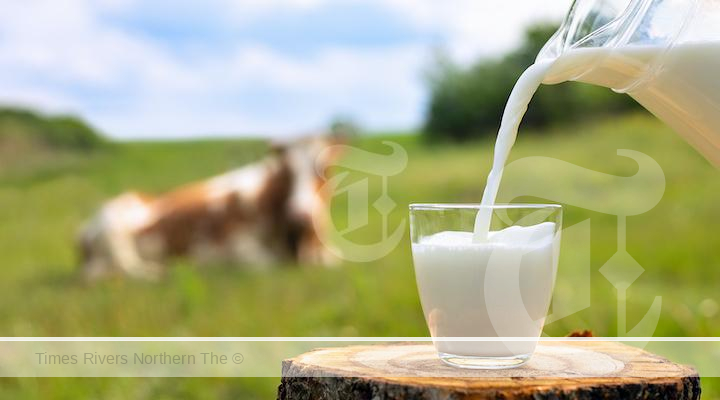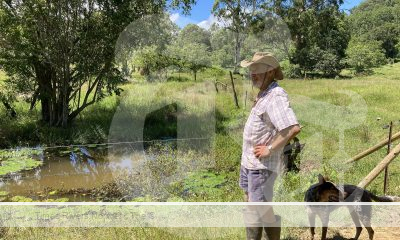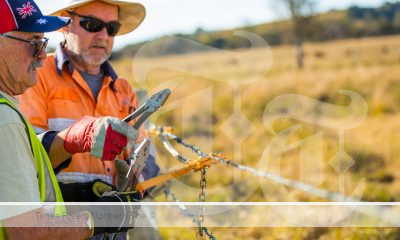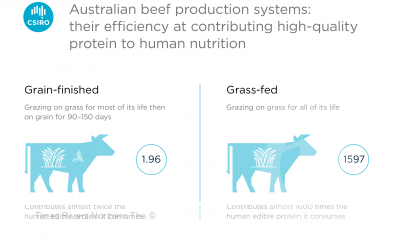Global dairy markets “teetering on the edge”
Global dairy markets are “teetering” at low milk production levels not seen since 2014, Rabobank says in its just-released Q4 Global Dairy Quarterly report.
The agribusiness banking specialist says weather-related issues have decimated peak milk production in New Zealand and Australia, while supply growth has also been stymied in the US and Europe by squeezed profit margins for producers.
This has resulted in a year-on-year global milk production deficit that is too deep to be offset by favourable milk production gains seen in South America, it says.
The report says – after nine consecutive quarterly increases – combined global milk supply growth in the major dairy-exporting regions halted in quarter three this year and will dip into negative territory in quarter four.
Report co-author, Rabobank senior dairy analyst Michael Harvey said combined quarter four milk production in the big seven dairy exporting regions – New Zealand, Brazil, Argentina, Uruguay, EU, US and Australia – is expected to decline by 0.3 per cent compared with quarter four last year. This will be the first quarterly year-on-year decrease since 2019.
The report said farmgate milk prices have followed commodity prices higher worldwide, with more potential upside still to come in some regions. Still, rising costs for inputs, labour shortages, unfavourable weather and questionable feed quality will limit the production response by producers, it said.
Global dairy exports have slowed in response to logistic disruptions, rising transportation costs, and elevated commodity prices.
“Global dairy exports based on product volume ran seven per cent ahead of the prior year during the first half of 2021, but slowed to one per cent in July and August,” the report said.
Chinese demand
Mr Harvey said a slowdown in demand for dairy inputs from China is expected and is needed to cool global prices in the face of limited supply-side increases.
“Chinese buyers are torn between the bullish sentiment outside China and the current weak fundamentals within China to decide whether, when, and at what price levels they should return to the market,” he said.
Inflation pressures
Despite rising inflationary pressures, consumers have yet to face “sticker shock” (where higher prices become a deterrent) for dairy products in most countries, the Rabobank report said, and this is supporting demand. That would not be the case in 2022, it said, as higher commodity prices from the second half of 2021 are passed through to consumers.
In addition, Mr Harvey said, new variants of Covid-19, inflation, labour and logistic challenges, along with others weigh on the global economic recovery with the potential for global dairy markets to “teeter or totter”.
Advertisements

NZ market impact
A sluggish spring milk production peak in New Zealand – the world’s largest dairy exporter – also contributed to a global supply slow down.
Mr Harvey said New Zealand milk production has only recently started to benefit from more sunshine and warmth for much of the country.
“Unfortunately, the change to more favourable weather was too late for the peak milk month of October, when collections dropped by 3.3 per cent year on year. There have now been three consecutive months of milk supply slipping backward against 2020 since August 2021,” he said.
“Rabobank’s New Zealand milk production forecast for the entire 2021/22 season is -1 per cent year-on-year. In a high milk-price environment and depending on cow condition, it is possible that there will be a late run to recover some of the lost production so far. But our base case assumes the weaker peak will be hard to recoup across the season – especially given lingering challenges to milk production in parts of Canterbury and in addition to high comparables to match from February onwards,” he said.
For Australia
For Australia, the Dairy Quarterly report said, many dairy farms had been dealing with a wet spring – particularly in Victoria and Tasmania.
October – peak dairy production in Australia – saw output down 2.1 per cent below last year. This means season-to-date production is down 2.9 per cent, Mr Harvey said.
Rabobank has lowered its milk production forecast, to -1.8 per cent for the 2021/22 season, back to 8.68 billion litres.
Mr Harvey said dairy companies in Australia’s southern export region are upwardly adjusting their initial (June) announced farmgate milk prices.
“Fonterra Australia and Saputo Dairy Australia both lifted prices to AUD 7.05/kgMS or more. There is potential for further increases as dairy exporters benefit from higher commodity prices, particularly skim milk powder. But there are lingering headwinds for local dairy exporters given the weaker-than-expected spring flush and ongoing supply chain bottlenecks and disruptions,” he said.
Rabobank’s revised farmgate milk modelled price for 2021/22 stands at AUD 7.75/kgMS, underpinned by rising commodity prices and a weaker currency.
“Australian dairy farmers continue to enjoy good margins,” Mr Harvey said “There are, though, production and margin risks beyond the weather, which will remain into the new year. Input costs have spiked for fertiliser and herbicide, with supply risks lurking in the next few months.”
Mr Harvey said high water allocations and healthy soil moisture profiles for irrigated dairy farmers in the southern Murray-Darling Basin will provide good prospects for summer feed crops.
“Rabobank also forecasts another large Australian winter grain crop for 2021/22. This will be welcome news for feed purchases – but noting global prices are supporting local prices,” he said.
The report says Australia’s food market is once again on the road to recovery.
“The Australian economy will grow in 2022, but consumers will face rising costs of living and food inflation including in the dairy aisle,” Mr Harvey said.
Australian dairy exports have remained buoyant through the nine months of the year, according to the Dairy Quarterly. Export volumes are higher across all the major commodities. Liquid milk exports have been strong, underpinned by Chinese demand with volumes 25 per cent higher. Exports of skim milk powder and butter have also performed well.





 Tweed Shire News2 years ago
Tweed Shire News2 years ago
 Motoring News1 year ago
Motoring News1 year ago
 COVID-19 Northern Rivers News3 years ago
COVID-19 Northern Rivers News3 years ago
 COVID-19 Northern Rivers News3 years ago
COVID-19 Northern Rivers News3 years ago
 Northern Rivers Local News3 years ago
Northern Rivers Local News3 years ago
 Health News3 years ago
Health News3 years ago
 COVID-19 Northern Rivers News3 years ago
COVID-19 Northern Rivers News3 years ago
 NSW Breaking News3 years ago
NSW Breaking News3 years ago





































